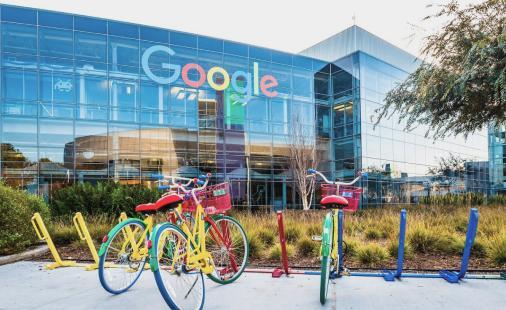Cloud Scraping – Why Choose Cloud-Based Web Scraping over Local
Learn about cloud-based scraping and how it differs from
web scraper browser extension from DataOx.
Ask us to scrape the website and receive free data sample in XLSX, CSV, JSON or Google Sheet in 3 days
Scraping is the our field of expertise: we completed more than 800 scraping projects (including protected resources)
Table of contents
Estimated reading time: 4 minutes
Cloud Scraping Introduction
Web scraping has become an essential tool in e-commerce, marketing research, consumer sentiment analysis, and even in politics and crime detection. So, with the growing demand for web scraping services, much is said about cloud-based web scraping, particularly in the context of real-time data extraction.
Let’s understand how you can benefit from cloud data extraction and highlight the difference between a web scraper cloud-based and a web scraper as a browser extension.
Cloud-Based Web Scraping
Web scraping can be performed in 3 major ways: through desktop applications, browser extensions, and cloud-based services.

People say that cloud-based scraping solutions are the most flexible ones, and the following facts make it clear:
- Cloud-based services are independent of OS.
- Collected insights are saved in the cloud and can be accessed at any time.
- Thanks to IP rotation proxy, you will avoid being blocked by the target websites.
- There is no need for high-cost hardware and maintenance.
- No network interruption will occur while scraping.
Common Features of a Cloud Web Scraper
Proxy rotation
Proxy rotation is used to access the website from a non-restricted location and prevents scrapers from being blocked. Thanks to a proxy server, a new IP address is assigned to a scraper for every connection.

This is critical, especially in the case of a large-scale scraping. So, when you need to send over 1000 requests to various websites, you do it from 1000 various IP addresses, thus preventing scrapers from being detected and blocked by anti-scraping measures.
Scheduler
A scheduler is another important feature enabling to schedule and automate scraping sessions for a certain period on a daily or hourly basis.
Parser
A parser is used to automate data post-processing to provide accurate and clean content. Using a parser, you will be able to delete/replace strings or columns with a few clicks instead of doing it manually.
Exporting data
A cloud web scraper enables the export of content in XLSX, JSON, and CSV formats, while a web scraper browser extension exports data only in CSV format.
Pros and Cons of Cloud-based Web Scraping
To be entirely informed, let’s discover what are the pros and cons of cloud-based scraping.
Pros:
- A cloud-based service can be used on any browser and any OS.
- No need to host anything yourself, everything is done in the cloud.
- There is no need to manage web proxy requirements.
- Cloud solutions are accessed and run without any special software programs
- installed on your PC; the only thing you need is internet access.
Cons:
- In case your data scraping needs grow, your monthly fees will grow correspondingly.
- Complex websites, where AJAX or JavaScript are used, usually cause difficulties for cloud solutions.
- Data security can be an issue.
- You may still encounter scraping restrictions applied on target websites.
Real-time Data with Cloud-based Scraping
If you are hunting real-time data from regularly updated resources like e-commerce sites and social networks, then it is better to use a cloud web scraper.
By gathering information up-to-the-moment you will be able to handle timely content analysis and comparison, thus collecting valuable insights about your competitors, customers, and market. Business strategies based on real-time insights will provide you with
- The increased website traffic and engagement,
- New lead generation opportunities,
- Better online reputation.
- Enhanced brand awareness,
- Improved sites’ ranking,
- Increased sales
The Difference Between a Web Scraper Cloud-Based and a Web Scraper as a Browser Extension

| Cloud Web Scraper | Browser Extension Web Scraper |
|---|---|
| Consistent stability and website accessibility while scraping. | Limited access. You can scrape only websites accessed via the browser. |
| Thanks to IP rotation proxy, the chance of getting blocked is small. | Special tools to overcome the anti-scraping mechanisms should be applied. |
| Scraped data is saved in cloud storage. | Information is saved in the local storage. |
| Images are not loaded during the scraping process. | Images are loaded while scraping. |
| Data exported in XLSX, JSON, and CSV formats. | Data is exported in CSV, XML or Excel formats. |
Cloud Web Scraping FAQ
What is cloud web scraping?
Cloud web scraping is the process of extracting data from websites and apps using a browser in the cloud. Cloud scraping services usually offer out-of-the-box solutions for anonymous web scraping with API configuration, IP rotation, and other complex tasks needed to get data from well-protected big sites. In contrast to local scraping, which allows extracting data from one page open in your browser at a time, cloud scrapers can scrape lists of URLs and store the data in the cloud.
What are cloud web scrapers?
Cloud web scrapers are tools allowing extract and save data from websites. E.g., WebscraperIO, Apify, ScrapingBee, OctoParse, etc.
What is a cloud-based web proxy?
A cloud web proxy is a connector between a user and a destination server. Proxy is used for data protection and anonymization. E.g., if you use a cloud proxy, the website or app you visit doesn't receive data about your actual IP and location. It can see only the proxy details.
In the case of cloud web scraping, you need to use an advanced technique named proxy rotation. Thanks to a proxy server, a new IP address is assigned to a scraper for every connection, and the server cannot identify you as a data scraper and block all those IPs. An example of a cloud web proxy provider is ProxyCrawl platform for anonymous web scraping.
Conclusion
We’ve already understood how cloud-based web scraping can help you in your business development. It provides you with new opportunities through real-time data analysis.
At DataOx we are always happy to offer various cloud-based scraping options to our clients meeting their business needs both financially and technically. Schedule a free consultation with our expert and find out how the DataOx team can help your business grow through cloud-based web scraping.
Publishing date: Sun Apr 23 2023
Last update date: Wed Apr 19 2023




